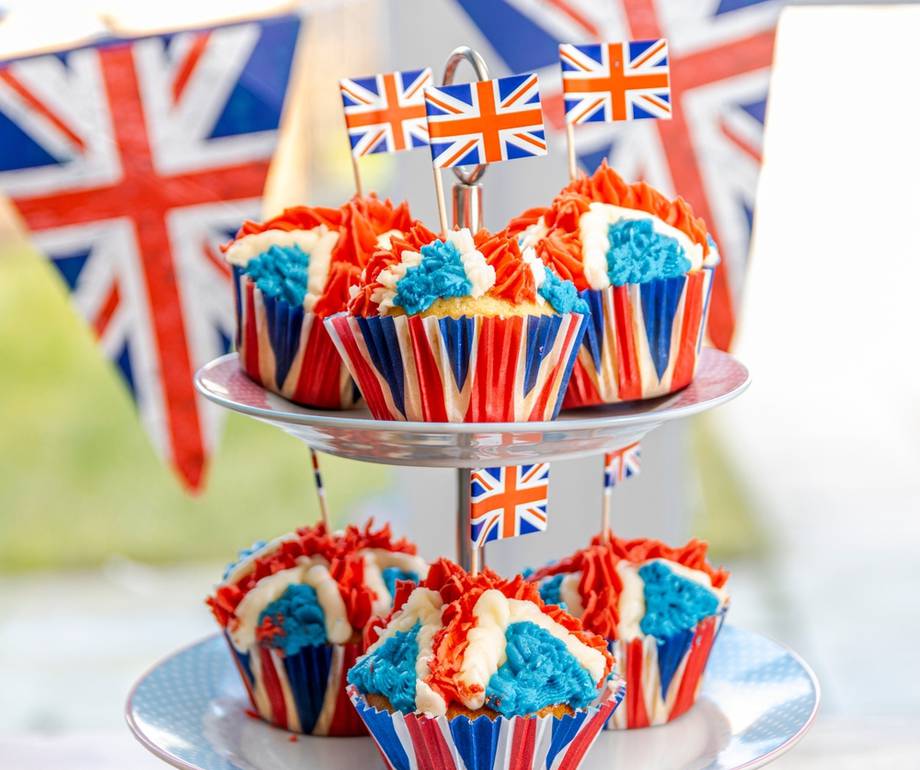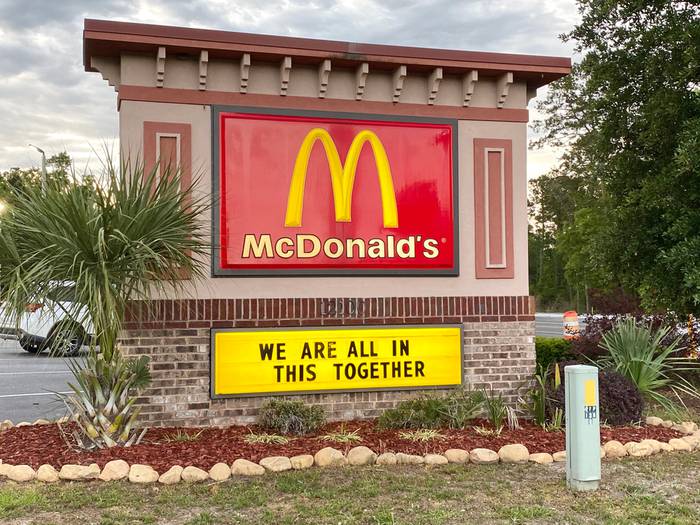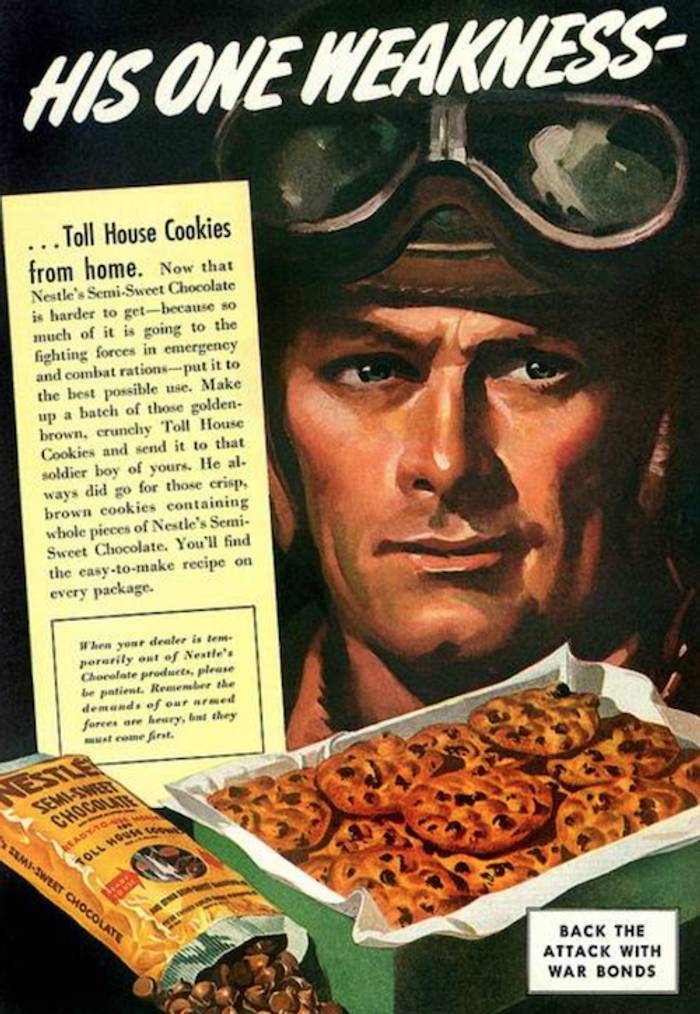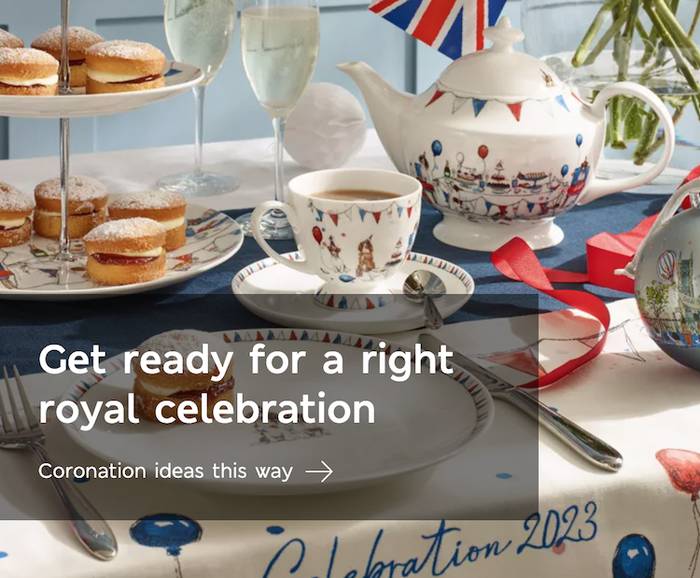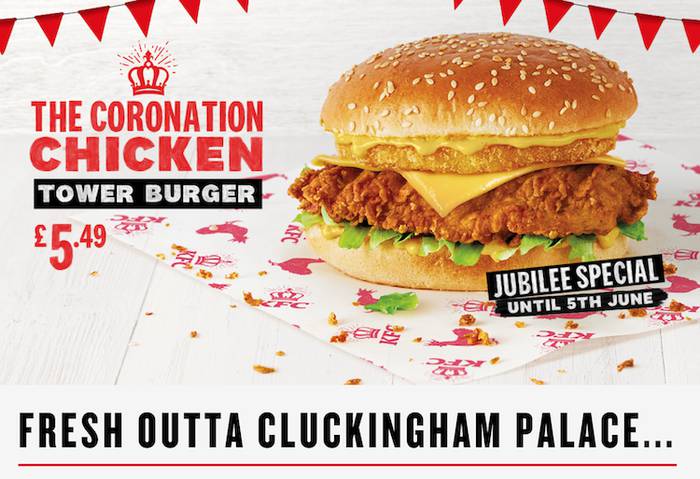There have been no shortage of globally significant events in the last few years, needless to say the pandemic, natural disasters and war are all contenders to top the news agenda and therefore how we market things to consumers.
You may wonder what these things have to do with marketing messaging, but the relationship between the two is as old as the art of marketing itself and highly interwoven.
As we speak, the world is gearing up for the coronation of King Charles and already we can see the marketing landscape adapting and capitalising on this - but why do marketing and advertising echo culturally important events? Let’s take a look at how and when we should piggyback events and why marketing and society have such a complex and intertwined relationship.
Why is marketing messaging married to societal sentiment?
Marketing and society are so interlinked and reliant on each other because messages must in some way serve the people, or provide for them support in, or even relief from the current societal pressures or events.
Of course, not all marketing messages need to reflect stressful or major world events, but even in the case of potentially (dependent on your viewpoint) positive news such as the coronation, we will see a flood of related products and messages as brands lean into popular culture and the conversations many of us are having - whether we are invested royalists or quite the opposite.
The way marketing holds a mirror to society and anchors its messaging in what we’re interested in occurs because at its core, marketing is designed to serve people things they may need in the way they need it and at the right time, so how we sell is as important as what we’re selling, if not more.
If something serious and negative is happening, i.e. pandemic or war, we must tailor our messages to be sensitive, we must pivot useful or contributing products and services accordingly. If we cannot actively help, but rather serve as a welcome or lighthearted distraction, do so in a way that is mindful. The placement, timing and content of our ads must be thought out to avoid upset/being seen as insensitive etc.
Naturally, brands sought to play their part in the pandemic and many like McDonald’s went with the idea that we’re all unified in the struggle. They were able to offer delivery and click and collect services to keep a sense of normality for consumers in a very uncertain time.
Undoubtedly, one of the biggest marketing ‘winners’ in the pandemic was providers of cleaning and hygiene products as we all clamoured to rid our homes of risk and germs. The messaging for these brands ranged from reassuring us that they had our backs, to selling on the back of our fear.
Utilising fear to sell is age old. It is something that we can trace back to amulets to protect from the plague - the so called ‘germ sell’ is a tried and tested way to get people spending in times of health crisis. You can also see examples of the way messaging pivots in old wartime ads, like the below example from Nestle, which used combat terms to sell cookies to send on to those fighting the war.
In the light of something like the coronation, most messaging will be inherently positive, positioning the event as a time to celebrate, come together and we’ll see lots of brands focusing on the chance to encourage us to have a big party; think food brands, homewares and party supplies - but that’s not all. You can certainly bank on a lot of regal, royal, majestic and noble puns this May.
This is why we promote that companies must understand the importance and role of the language they use in their marketing, especially when major events - good or bad - are happening. It is our role to help brands elevate their offering and position themselves as front and centre, so if there is a natural link between what they offer and the current happenings, it can be maximised.
The other half of this is that it is also our job to advise when that link feels too tenuous or like ‘land grabbing’ because although sometimes a tongue in cheek piggyback on an event or moment in time can work, this isn’t always the case. As with everything, context and consideration is king - excuse the pun.
How (and when) should you ‘piggyback’ on major events in your marketing?
Brands can and should piggyback on major cultural and societal events when:
It makes sense to join in - your band has a natural link/use in relation to the events in question
You are able to help be part of the solution - if there’s a challenge or problem
There’s a natural fun, way to engage - join the conversation, adding humour and lightheartedness to a positive scenario
You pass the context and consideration test - that is, does my execution make sense and is it considered in terms of longer term impact on the brand?
Let’s explore in a little more detail!
When it makes sense to join in
Some brands and events are made for each other, therefore, there is less piggybacking to be done because there’s a natural synergy. An example of this for the coronation is anyone offering food or partyware for example, because the pomp and circumstance of the event lends itself well to the street party nostalgia of days gone by and the likes of which we saw for the late Queen’s Platinum Jubilee.
Other brands which can naturally link to the news are those supplying homewares and collectibles, because for many things people will want to keep a memento of the moment. Jewellery as a keepsake is a long standing tradition and one which appeals to homegrown audiences, but also those further afield. Many international audiences want to feel more involved in the ceremonies and brands can capitalise on the fact that collective celebrations make people feel more positive and this means they are more likely to spend.
Jewellers and luxury goods makers creating limited items such as cufflinks, watches and brooches are already experiencing this and because of the interest in items such as the Crown Jewels, it’s a logical step for them to capitalise on these events. These pieces not only appeal to homegrown royalists, but international consumers too.
Deakin & Francis jewellers boomed following the Queen’s coronation in 1953; its commemorative spoons and cufflinks were a major success and this continues to this day with King Charles’ coronation. Deakin says his company had customers from Europe and the US queueing up for coronation cufflinks before their launch.
This serves to prove that there are mass market audiences of people willing to spend money, so where there is a sensible link, brands should leverage them. Messaging plays a key role here and especially (but not limited to) those with heritage and brand equity in this space, such as luxury brands above, can really tie into the monarchy’s messaging and the long-standing love Britain, and indeed the world, has for events like this.
When you are able to part of the solution
In situations where there is a collective challenge, or problem to be solved, brands are able to be part of the solution for their audiences and consumers, providing a huge opportunity to market to them. This is the aforementioned opportunity posed by the pandemic for cleaning supply brands, but there are even more recent examples.
Since the start of the economic downturn we’ve seen a resurgence of price wars between everyday retailers and part of this messaging is how brands continue to win over new consumers. If money is tight and the news agenda is a depressing list of price hikes, brands can be the solution.
This does not have to take the form of dramatically reduced pricing, it may be small reductions, loyalty schemes, buy-now-pay-later schemes like Klarna, it’s in any of the ways you can show your consumers that you see the struggle and you’re trying to pose a solution. This breeds a positive sentiment and encourages lasting loyalty.
When there’s a fun, natural way to engage
There are opportunities for some of the less-obviously-relevant brands to tag onto major events; you’ll likely see this best from companies such as fast food outlets. A great example of this is KFC around the diamond jubilee, when they launch a limited edition Coronation Chicken Tower Burger with a higher price point and only available at selected (royally-relevant) locations.
“The inclusion of the term ‘coronation’, for starters, really zings ‘high-end’ whilst creating a clear link to the occasion. And, if you want people to feel good things about your brand and product, what better way than to ‘share’ a feel-good moment with them to build positive mental and taste associations. Not to mention that it just so happens that the term has also had a huge uplift in search volumes around this time, giving the burger a little additional SEO sizzle.”
KFC took a very fun and strategic approach to this campaign and its limited availability not only created a sense of urgency, but made its production and roll out less of a risk to the brand. Throw in a funny pun and this is a marketing dream.
You pass the context and consideration test
As marketers, it is important that when we’re working with clients we help them elevate the possibilities within their brand guidelines, vision and values. This means creating content that is authentic to how the brand intended to interact with consumers and that it builds its reputation and loyalty on those factors. Of course, there can be exceptions to brand guidelines, but in general, the reason we create a strong brand identity and tone of voice is so that these elements become recognisable and the values of the business are communicated through the content it puts out - attracting relevant consumers who identify with those value propositions.
When we’re trying to piggyback on major events and societal happenings, it is important we do so with context and consideration. As demonstrated by the KFC example above, things do not have to be serious or intrinsically linked to work, but they do need to be considered.
We must not, for example, be insensitive to religion, marginalised communities or events that are generally perceived by many as sad/mournful (unless your entire brand is built on going against the grain, rebellion and general irreverence - in which case this is still an authentic take that is likely to work for your audiences).
The death of Queen Elizabeth II was largely a time to observe just how brands handle a major event with sensitivity - and it was certainly not a time for piggybacking unnecessarily. Some brands certainly did not pass the context and consideration text; in light of Her Majesty’s passing, fitness chain Crossfit shared a workout on Instagram named after the recently deceased monarch with a series of exercises punctuated by a ‘one minute silence’ in the rest spot.
This is a prime example of something not passing the context and consideration test; it feels incongruous, cheap and like a mockery of the grief of those genuinely mourning her death.
It is important that brands get this right because consumers are more aware than ever and savvy to the ploys of marketing, they do not want, need or expect their gym chain to mark the Queen’s passing and if so, at most, they might expect a simple ‘rest in peace’ post. Audiences are also more inclined and likely than ever to come for brands that do post insensitively; this not only reflects badly on the business in question at the time, but can have lasting impact on brand trust, loyalty and sentiment longer-term.
So, if you can logically come up with a contribution to the conversation, in this case, respectfully, then it’s fine to do so; many companies paid their respects without selling, or jokes and it was simply acknowledged as a moment in time. With the coronation around the corner, emotions won’t be as high, so it will be easier for the KFCs of the world to make content that is timely, relatable and passes these tests without causing upset or offence.
Looking to take the crown when major events take place?
Our team of marketing experts know what it takes to piggyback successfully! Get in touch using the button below or through our contact page.
Piggyback in style with our team of marketing experts.
Get in touchPost by

Amy joined in 2014 to set up our Content department. She now heads up a growing Brand and Content team, utilising over 13 years’ experience to deliver brand awareness through targeted, multi-channel copy. As well as engaging content for websites and blogs, Amy delivers PR strategies and tone of voice exploration, helping clients to communicate the purpose and values of their brand with maximum impact.
Project
